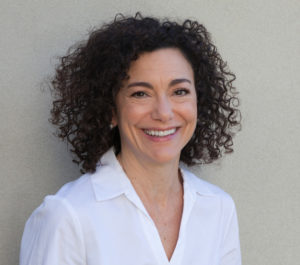Commentary on Parshat Lech Lecha (Genesis 12:1 – 17:27)
Our third and youngest child started college this fall. She left her city, her birthplace, and the only house she has lived in. At least once a day, someone asks me, “How’s the empty nest?” The answer is complicated, because I’m not in the nest anymore either. Like Abram in Parshat Lech Lecha, I have left where I have been to take an unfamiliar path to an unknown destination. The journey I find myself on in this era of political, cultural, and social upheaval is not a physical journey. Most nights I still sleep in the same bed. But discomfort with my white, upper-middle-class, privileged way of life has jolted me onto a path of new thoughts and actions.
Sign up to receive Torah from T’ruah in your inbox each week!
In this week’s Torah portion, Abram follows God’s call to leave his home in pursuit of greatness and blessing. His parents stay behind in Ur of the Chaldeans, to live out their days in the empty nest of biblical obscurity. The term “empty nest” conjures up an image of a home abandoned by purpose and meaning, the shell of what once was a container for loud chirping, hungry tummies, and plenty of broken eggshells. If I am living in an empty nest, then my journey must be over. And why shouldn’t it be? After all, through no merit of my own and the fortunate timing of my birth, this Jewish woman enjoys the blessings promised to Abram: blessings of abundance, a good name, and citizenship in one democratic country, with backup in another. But I know my journey isn’t over, because the intended outcome of God’s blessing has not been fulfilled. Genesis 12:1-3 reads, “And the Lord said to Abram, “Go forth from your land and from your birthplace and from your father’s house, to the land that I will show you. And I will make you into a great nation, and I will bless you, and I will make your name great, and you shall be a blessing. I will bless those who bless you, and the one who curses you I will curse, and all the families of the earth shall be blessed through you.” God makes it very clear; being blessed is not the same as being a blessing. So how can my journey be over when so many “families of the earth” are suffering?
Objectively, my circumstances are the polar opposite of the 68.5 million refugees, displaced persons, and asylum seekers who wander the earth in search of the place they belong; the immigrants and people of color and religious minorities and LGBTQ persons who are now regularly and systematically marginalized and discriminated against in their own country. The painful truth is that my personhood and way of life are actually being protected by many of the anti-democratic, immoral, and inhumane rulings, choices and policies of the current administration. And yet, I do not feel safe. In a safe place, vulnerable people are defended, not threatened. In a safe place, weapons are locked up and hidden from sight. In a safe place, the dignity of every person is held sacred, and no one is pre-judged as a “bad hombre.” The fear-mongering of our government is contagious, but I am not afraid of what someone else might do to me. I am afraid of what I am doing to others, through sins of either commission or omission. My journey begins with confronting my complicity in perpetuating injustice, inequity, and ignorance. The path from that place is one of building trusting, caring relationships with people who are paying the price for the blessings I have enjoyed.
 In a sermon given following the funeral of Botham Jean, a 26-year-old unarmed black man who was shot and killed in his own home by a white police officer, my (white) Baptist colleague and friend Pastor George Mason criticized “a culture dominated by white preaching that’s continually defending policies that are rooted in white supremacy and racism.” A YouTube video of his sermon resulted in hundreds of messages to him containing some version of the same message: “We didn’t know that people like you cared about people like us.”
In a sermon given following the funeral of Botham Jean, a 26-year-old unarmed black man who was shot and killed in his own home by a white police officer, my (white) Baptist colleague and friend Pastor George Mason criticized “a culture dominated by white preaching that’s continually defending policies that are rooted in white supremacy and racism.” A YouTube video of his sermon resulted in hundreds of messages to him containing some version of the same message: “We didn’t know that people like you cared about people like us.”
I can’t change the fact that I am a person of privilege. But I can try to let others know that I care, in word and deed. My nest overflows with blessings. It is time for the power of those blessings to be shared outside the nest, with people and groups who desperately need them. This is the Lech Lecha journey I am on, to do my part to realize the full benefit of God’s promise of security and prosperity. I pray that it is God who is calling me forth, and I thank God for organizations like T’ruah, who guide and support me on my way.
Rabbi Nancy Kasten is a community educator, volunteer, and activist in Dallas, TX.

